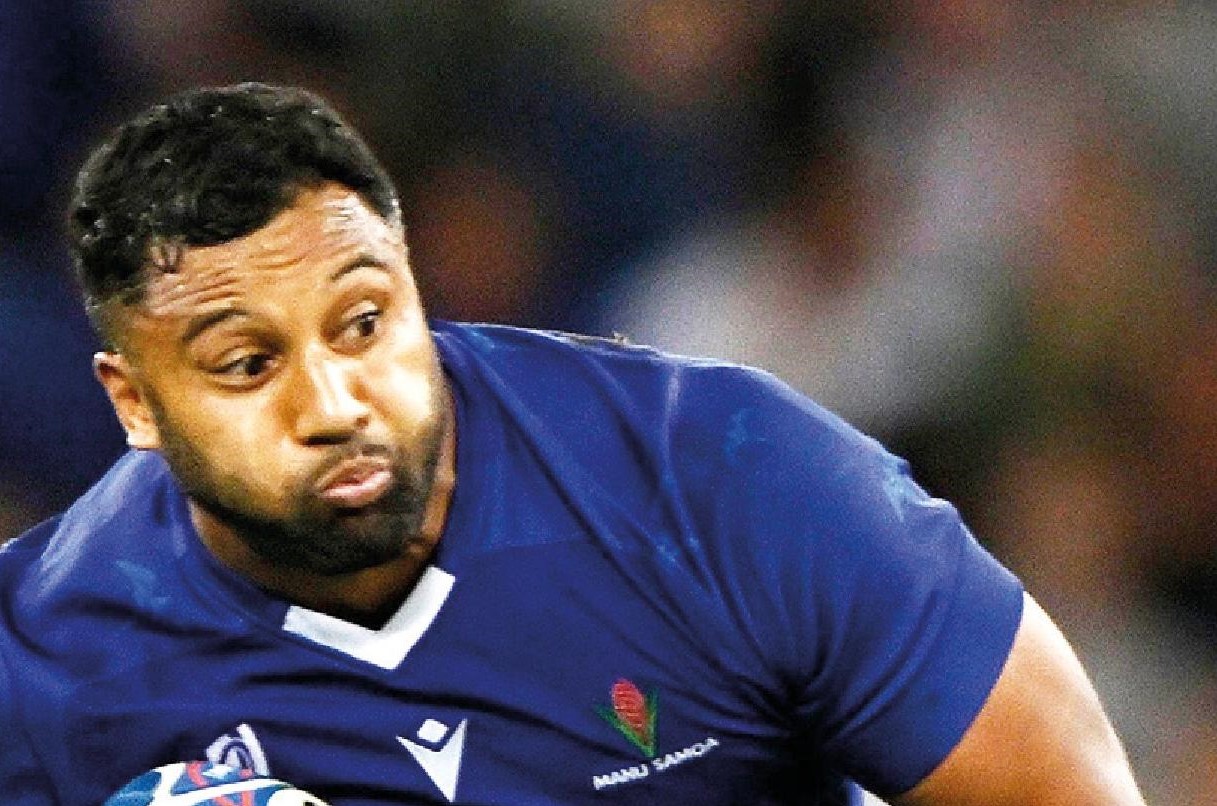Minnows can make splash of a whale

ACCORDING to Donald J Trump – you may have heard of him – “losers” are the lowest of the low, “suckers” and “schmucks”. One of the founding principles of what might loosely be called his philosophy, it applies even to the military.
“He's not a war hero,” Trump said of Senator John McCain, who had spent six years as a prisoner in Vietnam. “I like people who weren't captured.”
This makes the 45th President just the chap to run the “player of the match” operation when the 2031 Rugby World Cup takes place in the United States, always assuming he isn't busy being the 47th President, or trying to find a way out of jail. How so? Because in top-level professional rugby, losers no longer merit a first glance, let alone a second, when it comes to the glittering prizes.
Across the 48-game programme at the recent tournament in France – who knows how many there will be in eight years' time, once the genius class at World Rugby have cast their net widely enough to include Vatican City, Antarctica and Mothercare in the main draw – no fewer than 46 of the officially anointed Most Valuable Players were from the winning teams.
The exceptions were Jeronimo Portela, the Portugal playmaker adjudged to be the main man in the drawn pool game with Georgia, and his fellow outside-half Lima Sopoaga of Samoa, who, miracle of miracles, finished first in the ratings despite finishing second on the scoreboard.
Sopoaga's effort, albeit against a befuddled England side, should in no way be underestimated: such an achievement is about as common as rocking-horse manure in an age when, for reasons best known to themselves, the great and the good charged with making these calls invariably follow the Trump doctrine. “So you scored six tries and converted all of them. Who cares? LOSER!!!”
Frustratingly for those of us who have long admired those who play out of their skins in beaten teams and believe they should always be included in the discussions surrounding POTM awards, the World Cup was not an outlier. We see it pretty much everywhere these days, not least from the broadcasters responsible for the otherwise excellent coverage of Premiership rugby. Of the 30 – or, more often, 46 – players on show in any given match, only 15 – or, more often, 23 – appear to be considered eligible for the prize.
It goes almost without saying that this is stone-cold nonsense. During the global gathering in France, the airwaves and public prints were full of pundits going out of their way to praise the Uruguayans and Chileans and Portuguese for their resilience, their powers of invention, their courage in the face of overwhelming odds. So where was the tangible recognition of Manuel Ardao or Matias Garafulic or Raffaele Storti, all of whom played the house down time and again?
Things were a little more enlightened back in the day. An example? The second South Africa-Lions Test in 2009, at Loftus Versfeld in Pretoria, was one of the great games of the professional era and featured a better-than-great command performance from Simon Shaw on his Test debut in the red shirt. The Lions were beaten at the death and lost the series into the bargain, but in those more objective times, Shaw would have been named MVP had they gone down more heavily than a Springbok “bomb squad” at a collapsed scrum.
Not that the recognition improved his mood. Shaw's reaction, in a compelling post-match interview conducted by the ever-accomplished Graham Simmons, lives in the memory. “I'd rather have been taken off at half-time for playing poorly than to have won the ‘man of the match' and lost,” he said, tears in his eyes. “I'd rather have won this game and played badly.”
Those with a sceptical streak might suggest that the gradual narrowing of the POTM process has been driven by some or all of the businesses who pay good money to have their brand names associated with it. Who wants to see their precious sponsorship initiatives being belittled on live television? The kind of truth told by Shaw that day on the highveld is unlikely to be welcomed with open arms by the marketing executives who are currently shaping a sport desperate for their hard cash.
Individual baubles are largely beside the point in a team game, but the issue does say something about context, or the lack of it. Following the 2015 World Cup, your columnist had the brass neck to pick a team of the tournament that included DTH Van der Merwe of Canada and Shota Horie of Japan rather than the outstanding New Zealand players Julian Savea and Dane Coles, partly on the “value added” basis that it was a hell of a lot tougher being a Canuck or a Brave Blossom in that competition than it was being an All Black, and partly because the two “minnows” had made splashes like blue whales.
Two international cycles on, rugby's tide is flowing ever more strongly against the iconoclastic instinct. Oh well.